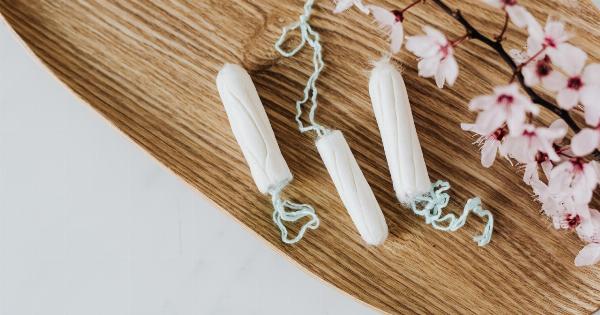Many women experience a variety of symptoms and challenges associated with their menstrual cycles.
From painful cramps and heavy bleeding to irregular periods and hormonal imbalances, these issues can significantly affect a woman’s quality of life. Fortunately, there are two medical professionals who specialize in treating such problems: gynecologists and naturopathic doctors.
In this article, we will explore how these doctors can help you take control of your periods and enjoy a more comfortable and balanced menstrual cycle.
Gynecologists: The Experts in Women’s Health
Gynecologists are medical doctors who specialize in women’s reproductive health. They undergo extensive training and education to diagnose and treat a wide range of gynecological conditions, including menstrual disorders.
If you are experiencing irregular periods, heavy bleeding, severe menstrual cramps, or any other issues related to your menstrual cycle, visiting a gynecologist is the first step towards finding a solution.
During your initial appointment, a gynecologist will take a detailed medical history and may perform a physical examination.
They may also order additional tests, such as blood work or imaging, to better understand the underlying cause of your menstrual problems. Once a diagnosis is established, your gynecologist will discuss different treatment options tailored to your specific needs.
Treatment Options Offered by Gynecologists
Gynecologists offer a variety of treatment options to address menstrual disorders. Here are some common approaches:.
1. Hormonal Birth Control
Hormonal birth control methods, including pills, patches, injections, and intrauterine devices (IUDs), can help regulate menstrual cycles, reduce heavy bleeding, and alleviate pain associated with menstruation.
Your gynecologist will discuss which method is best suited for you based on your medical history and individual needs.
2. Nonsteroidal Anti-Inflammatory Drugs (NSAIDs)
NSAIDs, such as ibuprofen or naproxen sodium, can help relieve menstrual cramps by reducing inflammation and decreasing the production of prostaglandins, hormone-like substances that contribute to pain and inflammation during menstruation.
3. Surgical Interventions
In some cases, surgical interventions may be required to address underlying medical conditions causing menstrual disorders.
Common procedures include dilation and curettage (D&C), endometrial ablation, or, in severe cases, hysterectomy (removal of the uterus). These interventions are typically considered only when other treatments have failed or when the underlying condition poses significant health risks.
4. Lifestyle Modifications
Gynecologists often recommend lifestyle modifications to help manage menstrual disorders. These may include exercise, stress reduction techniques, dietary changes, and maintaining a healthy weight.
Making these adjustments can have a positive impact on your menstrual cycle and overall well-being.
Naturopathic Doctors: A Holistic Approach to Menstrual Health
Naturopathic doctors (NDs) are healthcare professionals who take a holistic approach to diagnosis, treatment, and prevention of diseases.
When it comes to addressing menstrual health, naturopathic doctors focus on identifying and addressing the underlying causes of menstrual disorders, rather than simply alleviating symptoms.
During a visit to a naturopathic doctor, you can expect a thorough examination of your medical history, lifestyle, and diet.
Naturopathic doctors may also recommend various laboratory tests, such as hormone panels or nutritional assessments, to gain a comprehensive understanding of your health status.
Treatment Options Offered by Naturopathic Doctors
Naturopathic doctors provide a range of treatment options to promote hormonal balance and improve overall menstrual health. Here are some commonly used approaches:.
1. Botanical Medicine
Naturopathic doctors often prescribe botanical medicines, which are derived from plants, to support hormonal balance and ease menstrual symptoms.
These plant-based remedies can help regulate menstrual cycles, reduce pain, and address hormonal imbalances.
2. Nutritional Counseling
Naturopathic doctors emphasize the importance of a balanced diet and may recommend specific dietary modifications or supplements to address nutritional deficiencies and promote optimal hormonal function.
They may also suggest avoiding certain foods that might exacerbate menstrual symptoms.
3. Acupuncture
Acupuncture is an ancient Chinese healing practice that involves the insertion of thin needles into specific points of the body. Naturopathic doctors often use acupuncture to help regulate menstrual cycles, reduce pain, and promote overall well-being.
4. Stress Management Techniques
Stress can have a significant impact on menstrual health. Naturopathic doctors may incorporate stress management techniques, such as mindfulness meditation, deep breathing exercises, or yoga, to help reduce the effects of stress on the menstrual cycle.
Collaboration Between Gynecologists and Naturopathic Doctors
While gynecologists and naturopathic doctors approach menstrual health from different perspectives, collaboration between these two professionals can provide a comprehensive and personalized approach to treatment.
By combining the conventional medical knowledge of gynecologists with the holistic insights of naturopathic doctors, women can experience the benefits of both worlds.
A gynecologist can diagnose and treat underlying medical conditions, while a naturopathic doctor can focus on addressing the root causes and promoting overall wellness.
This integrated approach often leads to better outcomes and improved quality of life for women with menstrual disorders.
Conclusion
Menstrual disorders can be challenging, but with the help of gynecologists and naturopathic doctors, you can take control of your periods and improve your overall menstrual health.
Whether you choose to seek conventional medical treatment or explore a more holistic approach, these professionals have the expertise and knowledge to guide you towards a more comfortable and balanced menstrual cycle.






























